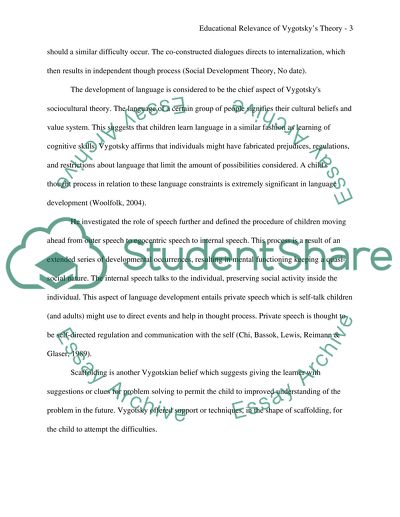Cite this document
(Educational Relevance of Vygotsky's Theory Essay Example | Topics and Well Written Essays - 1500 words, n.d.)
Educational Relevance of Vygotsky's Theory Essay Example | Topics and Well Written Essays - 1500 words. https://studentshare.org/education/1559790-educational-relevance-of-vygotskys-theory
Educational Relevance of Vygotsky's Theory Essay Example | Topics and Well Written Essays - 1500 words. https://studentshare.org/education/1559790-educational-relevance-of-vygotskys-theory
(Educational Relevance of Vygotsky'S Theory Essay Example | Topics and Well Written Essays - 1500 Words)
Educational Relevance of Vygotsky'S Theory Essay Example | Topics and Well Written Essays - 1500 Words. https://studentshare.org/education/1559790-educational-relevance-of-vygotskys-theory.
Educational Relevance of Vygotsky'S Theory Essay Example | Topics and Well Written Essays - 1500 Words. https://studentshare.org/education/1559790-educational-relevance-of-vygotskys-theory.
“Educational Relevance of Vygotsky'S Theory Essay Example | Topics and Well Written Essays - 1500 Words”. https://studentshare.org/education/1559790-educational-relevance-of-vygotskys-theory.


